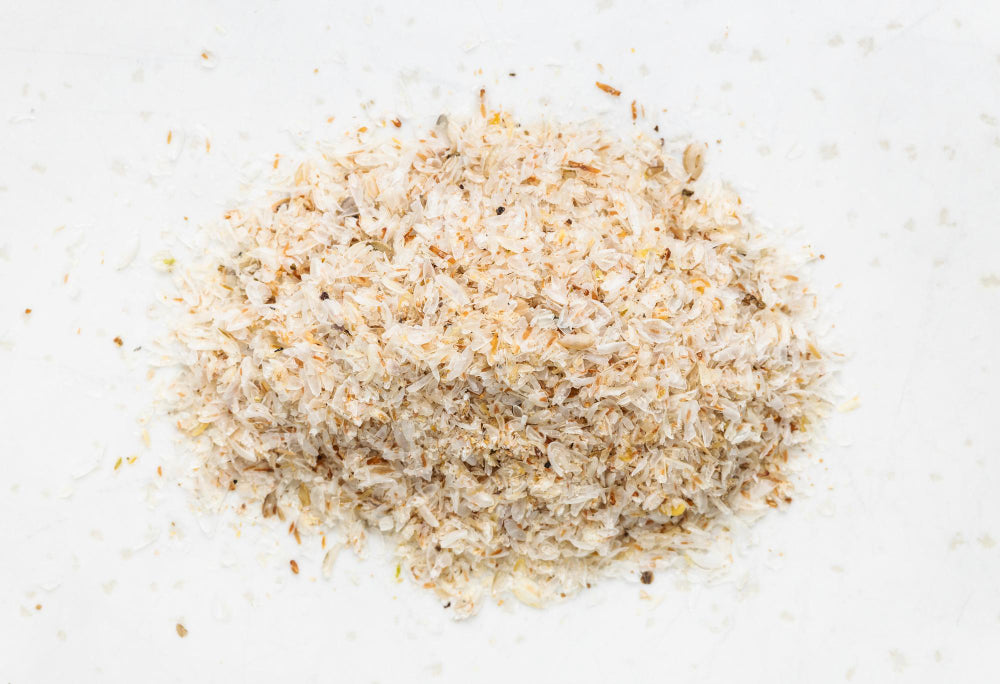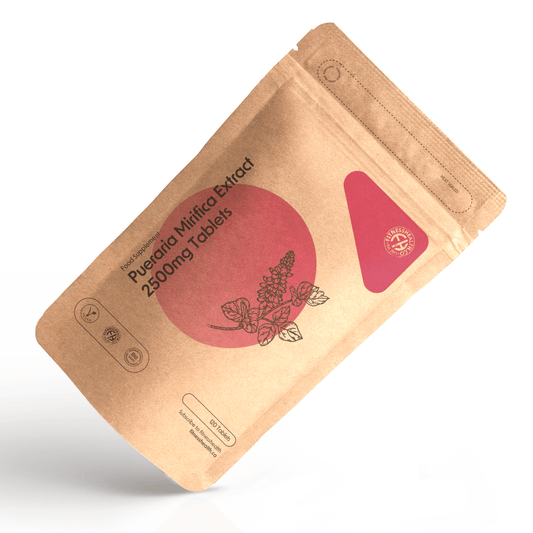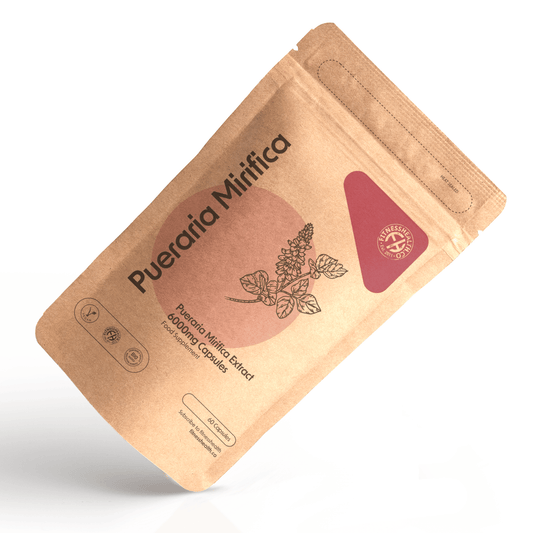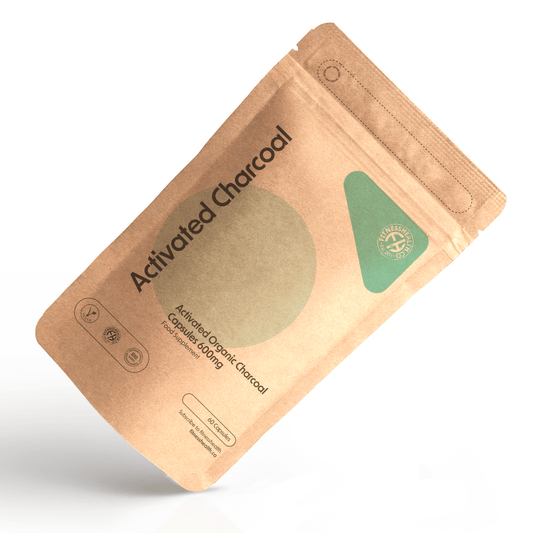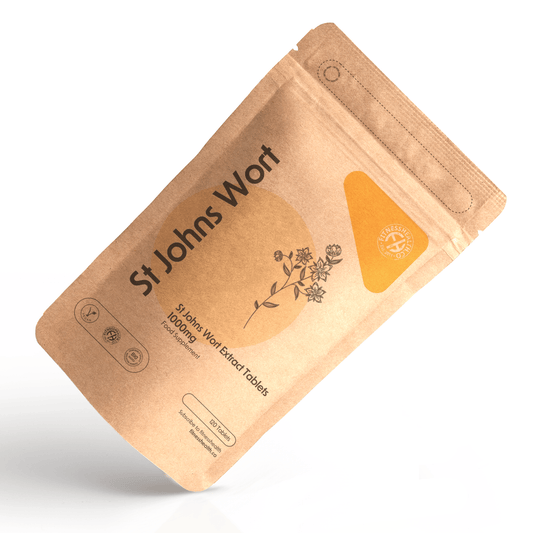Psyllium husk is a type of fiber that acts as a gentle, bulk-forming laxative, offering a range of benefits from relieving constipation to managing blood sugar levels. Derived from Plantago ovata seeds, psyllium is a soluble fiber available in various forms like husk, granules, capsules, or powder. With its ability to aid digestion, regulate cholesterol, and even promote weight loss, psyllium is a versatile supplement that can significantly impact your overall well-being. Let's examine how this powerhouse fiber can improve your health in seven different ways.
Psyllium Types
- Husk form
For those looking for a convenient way to increase their fiber intake, psyllium husk is a popular choice. Psyllium husk is the outer covering of the psyllium seed and is rich in soluble fiber. It is available in various forms such as capsules, tablets, and loose husk. This form is easy to mix with water or other beverages, making it a versatile option for individuals seeking to improve their digestive health.
This form provides a concentrated source of soluble fiber that can help support digestive health and promote regular bowel movements. Psyllium husk is particularly effective in relieving constipation and maintaining bowel regularity. When using psyllium husk, start with a small amount and gradually increase the dosage to prevent bloating or gas.
- Granules and powder
One of the advantages of psyllium granules and powder is their versatility. They can be easily mixed into foods like yogurt, smoothies, or baked goods to increase their fiber content. These forms of psyllium are convenient for those who prefer not to swallow capsules. When using psyllium granules or powder, it is vital to drink plenty of water to prevent potential digestive issues.
The granules and powder forms of psyllium are equally effective in providing the benefits of soluble fiber. They can aid in reducing cholesterol levels, managing blood sugar, and promoting a feeling of fullness. When incorporating psyllium granules or powder into your diet, be sure to follow dosage recommendations and stay hydrated to maximize its effectiveness.
Constipation relief
Bulk-forming laxative
One of the key benefits of psyllium husk is its role as a bulk-forming laxative. When taken, psyllium binds to partially digested food in the stomach, absorbing water to increase the size and moisture of stools. This process helps alleviate constipation by promoting the passage of larger, softer stools through the digestive system.
Increased stool moisture
Increased stool moisture is a crucial aspect of psyllium's effectiveness in relieving constipation. By absorbing water and forming a viscous compound in the gut, psyllium helps soften the stool, making it easier to pass. This not only provides relief from constipation but also supports overall digestive health by ensuring smoother bowel movements.
Diarrhea Treatment
Firming Loose Stool
Little is known about the effects of psyllium in firming loose stool. Psyllium, as a soluble fiber, has the potential to absorb water in the colon and create a gel-like consistency, which may help in solidifying loose stool. This process can aid in reducing the frequency and urgency of bowel movements during bouts of diarrhea.
Slows Colon Passage
To address diarrhea, psyllium acts as a beneficial agent in slowing down the passage of digested material through the colon. By absorbing excess fluids and adding bulk to the stool, psyllium helps in regulating bowel movements. This slowdown allows the body more time to absorb water from the stool, resulting in a firmer consistency and reduced urgency to pass stools.
Firming up the stool through the ingestion of psyllium can be a helpful strategy in managing diarrhea patterns. By creating a more formed stool, individuals can find relief from the discomfort and inconvenience of frequent loose bowel movements. Psyllium's ability to regulate bowel motility and absorb excess water in the colon makes it a valuable option for those looking to address diarrhea effectively.
Key Takeaways:
- Psyllium Benefits: Psyllium husk acts as a gentle, bulk-forming laxative with various health benefits including relieving constipation, treating diarrhea, managing blood sugar levels, and boosting heart health.
- Effects on Blood Sugar and Cholesterol: Psyllium, a soluble fiber, can help manage blood sugar levels, reduce cholesterol, and support heart health by forming a viscous compound that resists digestion in the small intestine.
- Weight Management and Satiety: Psyllium can aid in weight management by promoting satiety and reducing overall food intake, but more studies are needed to fully understand its effects on weight loss. It also has positive prebiotic effects that promote good gut and heart health.
Blood Sugar Management
Lowers glycemic response
With its ability to form a gel-like substance in the gut, psyllium can help slow down the absorption of sugar and improve glycemic response after meals. This means that consuming psyllium with meals can lead to more stable blood sugar levels, making it a valuable tool for managing diabetes or preventing blood sugar spikes.
Reduces blood sugar
An effective way that psyllium benefits blood sugar levels is by reducing the body's insulin and postprandial blood sugar responses. By slowing down the absorption of glucose, psyllium can help prevent sudden spikes in blood sugar levels, which is crucial for individuals with diabetes or those looking to maintain steady energy levels throughout the day.
Plus, psyllium can also promote better insulin sensitivity, which is vital for the body to utilize glucose effectively and keep blood sugar levels within a healthy range. This dual action of slowing down sugar absorption and improving insulin function makes psyllium a valuable addition to a balanced diet for optimal blood sugar management.
Boosting Satiety
Slows Stomach Emptying
The process of satiety, or feeling full and satisfied after a meal, plays a crucial role in weight management. Psyllium, a soluble fiber, forms a gel-like substance when mixed with water in the stomach. This viscous compound slows down the emptying of the stomach, leading to a prolonged feeling of fullness and reducing the urge to eat soon after a meal. By delaying gastric emptying, psyllium can help control calorie intake and support weight management efforts.
Reduces Hunger
With its ability to form a gel in the digestive tract, psyllium can help reduce feelings of hunger between meals. This viscous compound expands in the stomach and promotes a sense of fullness, curbing appetite and reducing the desire to snack unnecessarily. By incorporating psyllium into the diet before meals, individuals may experience a decrease in overall food consumption, making it a valuable tool in weight management strategies.
It is imperative to note that while psyllium can help reduce hunger, it is not a standalone solution for weight loss. Pairing its intake with a balanced diet and regular exercise is key to achieving and maintaining a healthy weight.

Weight Management
Satiety and Food Intake
Food intake plays a crucial role in weight management. Psyllium, a type of fiber, can aid in weight management by increasing satiety. By forming a viscous compound in the stomach, psyllium can slow down the emptying of the stomach and help individuals feel full for longer periods. This can lead to reduced overall food intake, which is beneficial for weight loss or maintenance.
Inconclusive Weight Impact
Management of weight through psyllium supplementation may yield inconclusive results. While some studies suggest that psyllium can contribute to weight loss by increasing feelings of fullness, other research contradicts these findings. More studies are needed to determine the true impact of psyllium on weight management. It is important to note that weight management is a complex process influenced by various factors, including diet, exercise, and overall lifestyle habits.
Lowering cholesterol
Binds dietary cholesterol
You'll be pleased to know that psyllium has the ability to bind to dietary cholesterol in your digestive system. As a soluble fiber, psyllium forms a gel-like substance when mixed with water. This gel traps cholesterol from food, preventing its absorption into the bloodstream. By excreting cholesterol-bound psyllium through the digestive tract, your body can naturally lower its overall cholesterol levels.
Decreases blood levels
While psyllium is busy binding to dietary cholesterol, it also works to decrease blood cholesterol levels. As psyllium moves through your digestive system, it aids in removing excess cholesterol that is already circulating in your bloodstream. By promoting the excretion of cholesterol-rich bile acids, psyllium helps your body maintain healthier blood cholesterol levels. This dual action of binding dietary cholesterol and decreasing blood cholesterol makes psyllium a valuable ally in protecting your heart health.
![]()
Promoting Heart Health
Reduces Blood Triglycerides
Little is known about psyllium's ability to reduce blood triglycerides. Psyllium, being a soluble fiber, can bind to cholesterol in the digestive process, assisting in the excretion of cholesterol from the body before it enters the bloodstream. This process can lead to a decrease in overall blood cholesterol levels, which may contribute to reducing blood triglycerides, a type of fat found in the blood.
Lowers Blood Pressure
To lower blood pressure, psyllium can be effective as a dietary supplement. Research indicates that soluble fibers like psyllium have the potential to reduce systolic blood pressure by a modest amount. Consuming psyllium regularly may help in managing blood pressure levels. However, it is important to note that psyllium should be part of a comprehensive approach to manage blood pressure, including a healthy diet and lifestyle habits.

Positive prebiotic effects
Nourishes intestinal bacteria
After reaching the colon, psyllium acts as a prebiotic, nourishing beneficial bacteria in the gut. These bacteria play a crucial role in maintaining gut health and supporting overall well-being. By providing a food source for these helpful microorganisms, psyllium aids in promoting a healthy gut microbiome.
Produces SCFAs
An vital benefit of psyllium is its ability to produce short-chain fatty acids (SCFAs) in the colon. While passing through the digestive system, psyllium fibers are fermented by gut bacteria, leading to the production of SCFAs. These SCFAs, especially butyrate, have been associated with numerous health benefits, including promoting gut and heart health, supporting the immune system, and reducing inflammation.
The production of SCFAs through the fermentation of psyllium fibers highlights the significant role that this soluble fiber can play in enhancing overall health. By fostering the growth of beneficial gut bacteria and producing SCFAs, psyllium contributes to a balanced gut microbiome and supports various physiological functions.
Side Effects
Mild and Uncommon
Once again, it's important to note that taking psyllium supplements typically does not result in serious side effects. However, in some cases, mild and uncommon reactions can occur. These might include gastrointestinal discomfort, such as bloating, gas, or abdominal cramping. Some individuals may also experience allergic reactions like rashes, itching, or difficulty breathing. While these side effects are not common, it's important to be aware of them and consult a healthcare professional if you have any concerns.
Possible Medication Delay
You may wonder about the potential for psyllium to delay the absorption of certain medications. Any delay in medication absorption could impact the effectiveness of the drugs you are taking. It is recommended to take medications either one hour before or 2-4 hours after consuming psyllium supplements. If you have concerns about how psyllium may interact with your medications, consult your healthcare provider for personalized advice and guidance.
Safety considerations
Allergic reactions
Assuming psyllium supplements are generally safe for most individuals, allergic reactions can occur in some rare cases. Symptoms of an allergic reaction may include rashes, itching, or difficulty breathing. It's crucial to discontinue use immediately and seek medical attention if you experience any of these symptoms after taking psyllium.
Professional consultation advised
Considering the potential interactions psyllium may have with certain medications and the possibility of allergic reactions, it is wise to consult with a healthcare professional before incorporating psyllium into your daily routine. Healthcare providers can offer personalized advice based on your medical history and current medications to ensure safe and effective use of psyllium supplements.
Dosage Recommendations
Standard Dosage Ranges
All individuals should start with a standard dose of 5 grams of psyllium, taken with a glass of water, three times daily as a bulk laxative supplement. This dosage can be adjusted gradually based on tolerance levels. It is crucial to follow the dosage instructions on the packaging or seek advice from a healthcare professional for personalized recommendations.
Importance of Water
Standard recommendations emphasize the importance of consuming an adequate amount of water when taking psyllium supplements. Water helps psyllium to absorb and expand in the digestive tract. Without sufficient water intake, psyllium may cause blockages in the intestines, leading to discomfort or potential health issues. It is crucial to drink plenty of water throughout the day to ensure the effectiveness and safety of psyllium supplementation.
Conclusively
Psyllium husk is a type of fiber that acts as a gentle, bulk-forming laxative with a range of potential health benefits. From relieving constipation to managing blood sugar levels and boosting heart health, psyllium offers a versatile solution for various health concerns. By absorbing water and forming a viscous compound, psyllium aids in regulating cholesterol, triglycerides, and blood sugar levels, as well as promoting weight management and relieving mild diarrhea and constipation. While more research is needed on its effects on weight loss, psyllium remains a valuable dietary supplement that can positively impact overall health and well-being.
FAQ
Q: What is psyllium?
A: Psyllium is a soluble fiber derived from the seeds of Plantago ovata, an herb grown mainly in India. It is used as a dietary supplement and can be found in the form of husk, granules, capsules, or powder. Psyllium absorbs water and becomes a thick compound that resists digestion, offering various health benefits.
Q: How does psyllium help relieve constipation?
A: Psyllium acts as a bulk-forming laxative by binding to partially digested food in the stomach and increasing water absorption in the intestines. This results in larger, moisture-rich stools that are easier to pass, effectively relieving constipation.
Q: Can psyllium be beneficial for managing blood sugar levels?
A: Yes, psyllium supplements can impact the body's glycemic response to meals, leading to lower fasting blood sugar and hemoglobin A1c levels. Studies have shown improvements in blood sugar levels and cholesterol in individuals with type 2 diabetes who consumed psyllium.
Q: Does psyllium play a role in weight management?
A: Psyllium, due to its ability to form viscous compounds, can increase feelings of fullness and reduce hunger, which may help in weight management by reducing overall food intake. Although more studies are needed, psyllium could potentially be a part of a weight loss program.
Q: Are there any side effects or safety concerns associated with psyllium?
A: Generally, psyllium is well-tolerated by most people, but allergic reactions like rashes or itching can occur in rare cases. Psyllium may interact with certain medications, so it's important to consult a healthcare professional before taking it. It is recommended to start with a low dosage and increase gradually while drinking plenty of water throughout the day.

